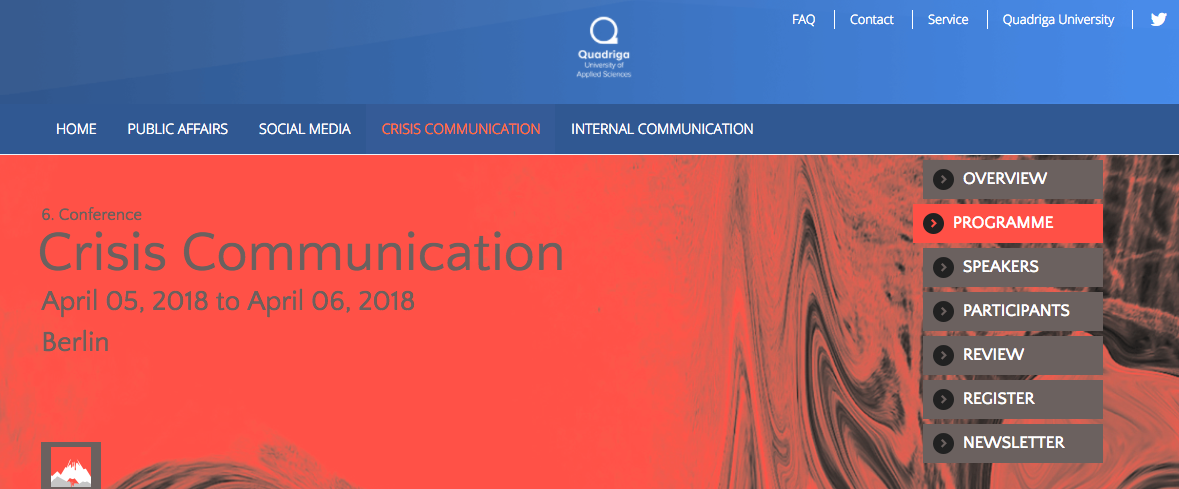I had the pleasure to moderate the 6th International Crisis Communication Conference which Quadriga University hosted during the 5th and 6th of April. Two intense days packed with panels, presentations, workshops and a simulation game and plenty of food for thought.
A brief summary
Prof. Dr. Denis Fischbacher-Smith witty keynote reminded participants how instrumental managers are in creating the environment for a crisis and in managing it.
The panel that followed, (Communication in the event of a cyber crisis) looked at the upcoming GDPR legislation and its impact on communicators and their work with IT experts. It also emphasized the growing importance of data (and information) and the challenging path one has to navigate when targetted (whether hacked or breached).
The cases that followed, from Ukraine, Hungary, and Russia have provided participants with unprecedented insight while directly exposing them to the dilemmas of the communicators managing the crises: whether related to (personal or data) security to political approaches. These were, in my view, the small or less known cases, where resources are more scarce, support not as easy to gather and stakeholders demands are more polarized. This is very different from the presentations with which we closed the conference with (TUI and Mondelez) where a global brand or house of brands benefit from the planning, strategy, and exercise (as in training) of crisis communication.
The workshops and simulation game only strengthened the points the presentations made but they provided participants with an opportunity to either test something new or put their knowledge and reactions to test with the scenarios proposed. This was their chance to put into practice what they learned (or already knew) and get some feedback. I had a chance to see some of the workshops (and their behinds the scenes) and I was utterly impressed.
What I take home
The role of a conference moderator is similar to a mediator. It needs to ensure the event runs smoothly, that people are back on time in the room and that all questions are answered. The perk of being a moderator is the exposure to the wealth of knowledge the conference brings and the challenge is when one is asked to summarize it all. For me, this conference made 3 major points:
- crisis communication training/planning is more important than the crisis manual (after all, one cannot foresee all cases but can certainly think of the best way to react, and the resources and people needed to do so)
- values (and making them known) become increasingly important (one cannot stay apolitical when dragged into a political debate nor can one be neutral when its business model, mission, and vision state otherwise …. walking the talk is essential)
- information (access to or lack of, acquisition and loss of data) is increasingly becoming a new currency (this might bring communicators into the spotlight more often either as creators, managers or monitors)
What did you take from the #ICCC18?
